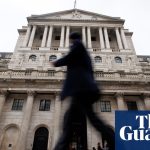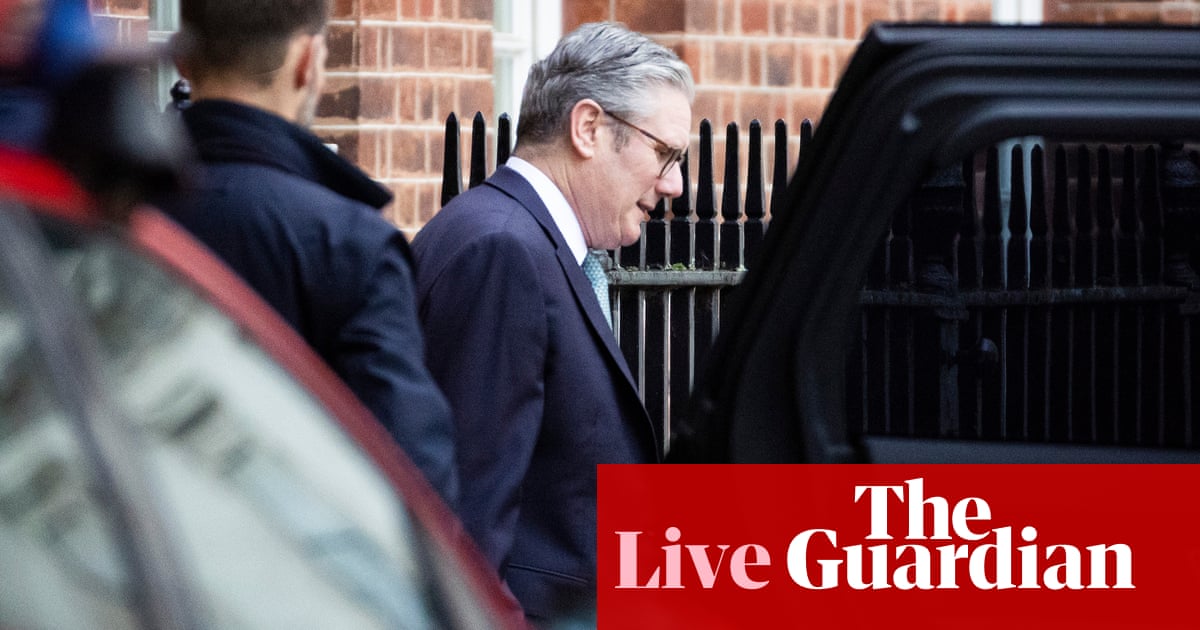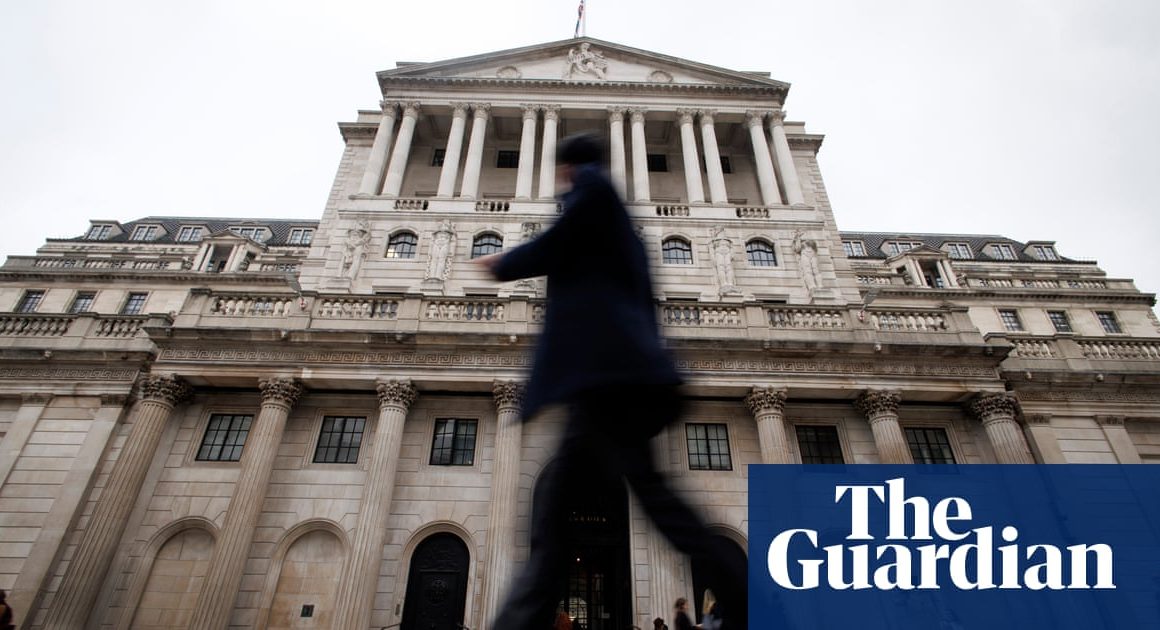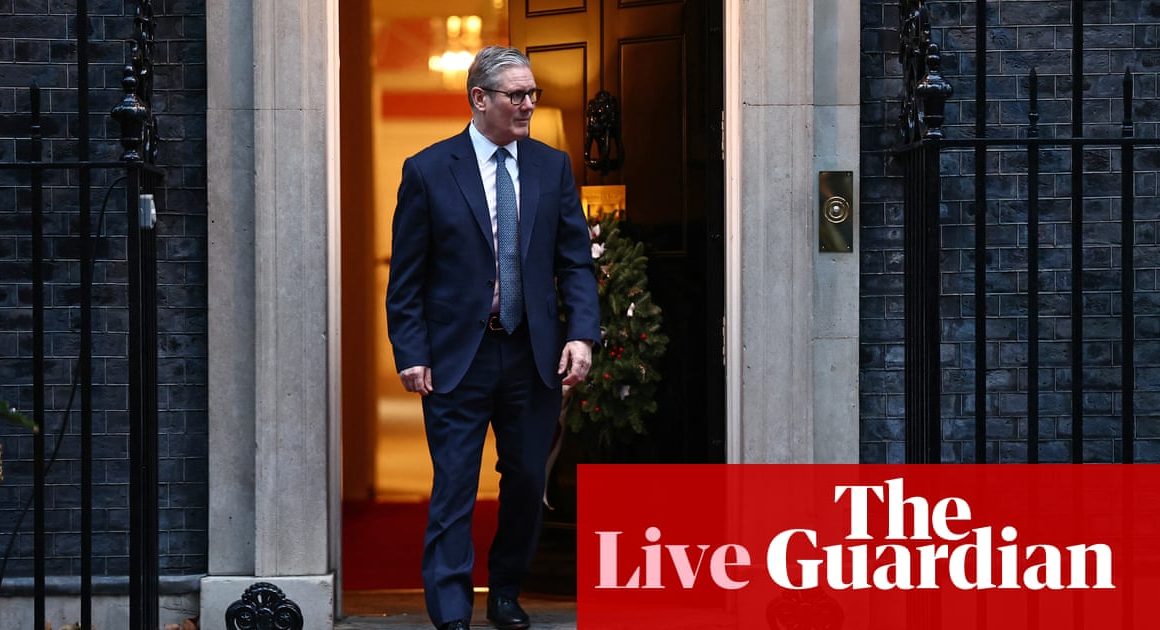Starmer speech to say budget will ‘ignore the populist chorus of easy answers’
Keir Starmer will be making a pre-budget speech later today in which he is expected to lay out what he says is the dire state of the fiscal reality of the country, but promise that “better days are ahead”.
In briefings given in advance of the speech, the prime minister is expected to say:
This is not 1997, when the economy was decent but public services were on their knees. And it’s not 2010, where public services were strong, but the public finances were weak. These are unprecedented circumstances.
And that’s before we even get to the long-term challenges ignored for 14 years: an economy riddled with weakness on productivity and investment, a state that needs urgent modernisation to face down the challenge of a volatile world.
Starmer will say the Budget will embrace the “harsh light of fiscal reality”, and will have to “ignore the populist chorus of easy answers”.
In the 2024 Labour manifesto the party said:
The Conservatives have raised the tax burden to a 70-year high. We will ensure taxes on working people are kept as low as possible. Labour will not increase taxes on working people, which is why we will not increase National Insurance, the basic, higher, or additional rates of income Tax, or VAT.
Key events
Esther Webber at Politico has an interesting piece this morning looking at some of the complaints by newly elected MPs about how, one said, “tradition is standing in the way of MPs being able to either see their kids in the evening or do our job effectively.”
Among the complaints are the tradition of MPs having to bob up and down to attract the attention of the speaker in order to be called, late sitting hours, and the failure to implement electronic voting.
Green MP Ellie Chowns has complained the so-called bobbing “is not an efficient or accessible way to form an orderly queue to speak.”
Webber writes:
MPs are proposing the Commons should have a “call list” of the kind already employed by the House of Lords, where a list is published each day setting out who is going to speak and in what order.
Some would also like to see a reformed timetable, with earlier sitting hours on Tuesdays and Wednesdays, and a return to digital voting, which was trialed during the Covid pandemic but later dropped.
You can read more here on the Politico website: Britain’s new MPs rage at parliament’s old traditions
Kevin Rawlinson
Imposing VAT on international schools in the UK could lead to hundreds of pupils leaving, European diplomats have said.
They called for the institutions to retain the exemption from the 20% duty that private schools are expected to lose.
The German and French ambassadors to the UK, Miguel Berger and Hélène Duchêne, said international schools were distinct from British private schools because the option of transferring to the British state sector was not always realistic for their pupils.
Read more from Kevin Rawlinson here: VAT on international schools ‘could prompt hundreds of pupils to leave UK’
We are expecting Keir Starmer to give a pre-budget speech at about 11.15am this morning.
It will, naturally, be quite light on detail ahead of the budget itself – tradition dictates that major measures can be trailed and hinted at but not announced before the day – but the prime minister is expected to set out the direction of travel for his government this way, with overnight briefing suggesting he will say:
It is working people who pay the price when their government fails to deliver economic stability. They’ve had enough of slow growth, stagnant living standards and crumbling public services. They know that austerity is no solution. And they’ve seen the chaos when politicians let borrowing get out of control.
We choose a different path: honest, responsible, long-term decisions in the interests of working people. It’s stability that means we can invest, and reform that will maximise that investment.
Stability, investment, reform. That’s how we fix the NHS, rebuild Britain and protect working people’s payslips. Delivering on the mandate of change.
If people want to criticise the path we choose, that’s their prerogative. But let them then spell out a different direction. If they think the state has grown too big, let them tell working people which public services they would cut. If they don’t see our long-term investment in infrastructure as necessary, let them explain to working people how they would grow the economy for them.
This is an economic plan that will change the long-term trajectory on British growth for the better.
McFadden: Hunt is attacking OBR because Tories ‘don’t want to hear the truth’ about fiscal position
Cabinet minister Pat McFadden has issued a strong rebuke to shadow chancellor Jeremy Hunt’s criticism of the Office for Budget Responsibility plans to publish a report about the country’s fiscal situation, saying the Tories “don’t want to hear the truth” about the financial situation they left for the new government.
Speaking on GB News, McFadden said:
You have the sight today of the shadow chancellor desperately attacking the Office for Budget Responsibility for producing a report on the inheritance. They don’t want to hear the truth. They don’t want people to know about it.
We inherited a whole load of things that were announced for which no funding had been allocated. It was enormously irresponsible.
He said that when voters hear the budget announcement on Wednesday, they should be “annoyed at a mess that we inherited.”
He told viewers:
If people are annoyed about things that they’ll hear about in the Budget, what I would say is be annoyed at the Tory legacy. Some of these decisions are difficult, but we have to fix up the situation that we inherited.
There will be extra funds for public services, and there’ll be a different investment story for the future.
Hunt, who was appointed as chancellor by Liz Truss in October 2022 after her disastrous mini-budget led to the sacking of Kwasi Kwarteng, has complained that the decision of the OBR to publish a report on the same day as the budget was “a surprise and a significant concern”. [See 9.50am GMT]
McFadden was also inevitably again asked about the definition of a “working person” by the media, and said:
We’ve had a lot of discussion in recent days about definitions, about job descriptions, or people’s earning levels and so on. I don’t really think that’s the way to look at it.
The way to look at it is to look at what we said in our manifesto about income tax, national insurance and VAT. And the question is, will we keep to those promises when the Budget happens on Wednesday? We will.
McFadden added “It wasn’t somebody is included if they earn a particular amount or they do a particular job, I don’t think that’s a helpful way to think about it. We will stick to our manifesto promises.”
Hunt says ‘friends’ need to tell OBR if its political impartiality ‘is being undermined’
Shadow chancellor Jeremy Hunt has returned to his theme this morning that Office of Budget Responsibility (OBR) plans to publish a review of the Treasury on the same days as the budget are, he says, undermining the OBR’s position of political impartiality.
In a message on social media, the former chancellor said:
I’m a strong supporter of the OBR. I was proud to serve in the government which set it up and strongly believe it enhances the UK’s economic credibility. However its credibility in holding the government to account depends on political impartiality so if that is being undermined friends need to say so. It cannot be right to publish a review of what happened under the previous government without consulting those who had political responsibility at the time.
I’m a strong supporter of the OBR. I was proud to serve in the government which set it up and strongly believe it enhances the UK’s economic credibility. However its credibility in holding the government to account depends on political impartiality so if that is being undermined… pic.twitter.com/5BrEBcQS8W
— Jeremy Hunt (@Jeremy_Hunt) October 28, 2024
As my colleague Graeme Wearden reported late on Sunday, Britain’s fiscal watchdog is to publish a detailed breakdown of the £22bn “black hole” that Labour says it inherited after Rachel Reeves presents the budget on Wednesday, which Hunt has described as “a surprise and a significant concern.”
McFadden: Labour budget will be ‘most honest’ in years
Cabinet minister Pat McFadden has said that the new Labour government had “levelled with people” ahead of the budget, and that it would be “the most honest … we’ve had for some years.”
Speaking on Times Radio, PA Media quotes McFadden saying:
There’s no point in telling people everything’s absolutely fine when the prison system is in a state of collapse, when NHS waiting lists are at a record high, when we’ve got crumbling schools.
There’s so much that’s wrong that we’ve got to fix and it’s important to set that out honestly and candidly for the public.
I think we’ll have the most honest Budget on Wednesday that we’ve had for some years.
An important thing is when people see their payslip after the Budget, those key things to look for: the level of tax – income tax and national insurance – in their payslip in their wages, that won’t change after Wednesday.
Jeremy Corbyn and the independent alliance of MPs have issued a letter ahead of the budget with five things they are asking Chancellor Rachel Reeves to implement.
Saying “We have the means to end poverty, we just need the political will”, Corbyn listed five priorities:
-
Scrap the two-child benefits cap
-
Reverse cuts to winter fuel
-
Tax wealth
-
Protect welfare
-
Invest in a greener future
In a letter accompanying the requests, the independent group of MPs write:
It is a national scandal that 4.2 million children and 2.1 million pensioners are living in poverty in the sixth richest country in the world.
You have previously told the British public to prepare for “difficult decisions” to repair this nation’s finances.
At the very same time, you have committed to raising defence expenditure to 2.5% of GDP. Imagine if we spent that money on renewable energy, social housing, schools and the NHS instead.
The Labour party this morning is touting a piece in the Sun in which the government is announcing it will pledge £500m to fixing what it terms “the pothole crisis” in Wednesday’s budget.

Josh Halliday
Josh Halliday is the North of England editor at the Guardian
A Labour MP has warned that the government risks embarking on “austerity 2.0” in a stark warning ahead of the budget on Wednesday.
Kim Johnson, the MP for Liverpool Riverside, urged the chancellor Rachel Reeves to reverse expected cuts to benefits and the winter fuel allowance, citing fears that “people will die this year unless this cut is reversed”.
In a letter to Reeves published on Monday, Johnson writes: “The anticipated £3 billion in sickness benefit cuts risk driving some of the most vulnerable in our society into poverty and could be perceived as austerity 2.0.”
Liverpool Riverside is ranked as the most deprived parliamentary constituency in the UK, where 43% of children are classed as living in poverty – more than double the national average.
Johnson, a backbench MP who has not shied away from criticising the Labour leadership, writes that her constituency has suffered “systematic impoverishment, skyrocketing inequalities and plummeting living standards under successive Tory governments, while the right and powerful continue to benefit”.
She adds: “On 30 October, these communities who voted for change will be looking to Labour to deliver for them. We must not let them down.”
During his media round this morning Pat McFadden rather hit the nail on the head about the futility of interviews around the time of the budget, when ministers are forbidden from giving any details in advance. He told viewers of BBC Breakfast:
I can’t speculate on the individual measures. We’re in this period where you interview people a day or two before a budget, and we really can’t comment on what might be in it.
It seems like that the question and answer session after Keir Starmer’s speech this morning will mostly consist of him saying “Well, I can’t give you any details, wait until Wednesday” to an increasingly frustrated broadcast journalist pool. We will, of course, bring you any key lines that do emerge when the prime minister speaks.
Atkins: Starmer’s budget plans hark back to ‘1970s socialism’
Conservative shadow health secretary Victoria Atkins has accused the Keir Starmer government of imposing “1970s socialism” with its budget plans.
Speaking on GB News, Atkins, who retained her Louth and Horncastle seat in July’s election, said:
This is socialism that we’ve seen in the 1970s. This Labour government came into power promising they weren’t going to raise taxes. They have this peculiar definition of working people. They don’t seem to understand what a working person is, even though they’ve set this test for themselves.
If you have assets, if you work, if you’re a pensioner looking this winter as to how you’re going to make up that shortfall, given that they’ve slashed winter fuel payments, this is going to affect all of us.
This idea that they’re compartmentalising and separating us into different categories of people that they find acceptable, I think is the very worst of socialism.
It seems unlikely that many on the left of the Labour party would claim that Rachel Reeves is about to launch a set of socialist economic policies in the budget this week.
In its election manifesto, Labour ruled out tax rises on income tax, employee national insurance contributions, and VAT.
McFadden reiterates no raises in income taxes, employee national insurance contributions or VAT in budget
On the BBC Breakfast programme cabinet minister Pat McFadden was asked more about Labour’s definition of “working people”, a phrase which has dominated media coverage in recent days.
He said:
I don’t define this by picking a job, or an income level, and relate it to the promises you just mentioned in the manifesto. We were talking about the taxes that people pay on their wages, and we said we will not increase those.
Look, that was true in the campaign. It’s true today. It will be true after Wednesday. We will stick to those promises when the Chancellor updates the budget speech this week.
Paul Johnson, director of the Institute for Fiscal Studies, has described it as “frustrating” that both Labour and Conservatives ignored his warning before the election that there was a significant problem with the public finances.
He told the BBC Radio 4 Today programme:
One heard the senior politicians from both sides continually saying that there wasn’t this problem, and taxes wouldn’t really have to go up, and growth would source it all.
But everybody knew that there was a big problem with the public finances, and we’d either have to get tax increases or significant spending cuts.
And lo and behold, we’re being told that that has now been discovered, and it looks like we’re going to get something like £40bn of tax increases, if the briefing is to be believed.
And that would make this one of the biggest tax raising budgets ever.
McFadden: ‘real reasons’ for optimism as country approaches first Labour budget in 14 years
Cabinet minister Pat McFadden has said there are “real reasons” to have optimism as the country approaches the first Labour budget for 14 years later this week.
He stated that the government had “inherited a plan to decline, to reduce, investment” from Rishi Sunak’s Conservative government, and that the measures Labour were taking in the budget were “tough decisions” but the start of a turnaround.
He told viewers of BBC Breakfast:
I think people should look for three things in the budget. Will it stabilize the country’s public finances and do so in a way that keeps our promises? It will
Will it also start to turn around the public services and the NHS in particular. We will start that road with a combination of both investment and reform.
And critically, will it change the country’s story for the future by investing in the things that we need, the better schools, hospitals, the houses we need, the transport infrastructure, the energy infrastructure. This is what Britain has to do if it’s going to get better economic growth in the future.
What we inherited was a plan to decline, to reduce investment in all of those things going forward. That’s not a role we were prepared to accept we need to invest in the future of the country if we’re going to have a better future. So there are tough decisions in this budget. There are also real reasons to look for hope and optimism, for better public services, a better NHS and a better investment and growth story for the UK in the future.
McFadden has served as Chancellor of the Duchy of Lancaster since July’s general election.
Starmer speech to say budget will ‘ignore the populist chorus of easy answers’
Keir Starmer will be making a pre-budget speech later today in which he is expected to lay out what he says is the dire state of the fiscal reality of the country, but promise that “better days are ahead”.
In briefings given in advance of the speech, the prime minister is expected to say:
This is not 1997, when the economy was decent but public services were on their knees. And it’s not 2010, where public services were strong, but the public finances were weak. These are unprecedented circumstances.
And that’s before we even get to the long-term challenges ignored for 14 years: an economy riddled with weakness on productivity and investment, a state that needs urgent modernisation to face down the challenge of a volatile world.
Starmer will say the Budget will embrace the “harsh light of fiscal reality”, and will have to “ignore the populist chorus of easy answers”.
In the 2024 Labour manifesto the party said:
The Conservatives have raised the tax burden to a 70-year high. We will ensure taxes on working people are kept as low as possible. Labour will not increase taxes on working people, which is why we will not increase National Insurance, the basic, higher, or additional rates of income Tax, or VAT.
Welcome and opening summary …
Prime minister Keir Starmer will make a speech today in which he is widely expected to say that this week’s budget will embrace the “harsh light of fiscal reality” because “it’s not 2010”, but he will promise that “better days are ahead”.
Here are your headlines …
Chancellor Rachel Reeves and health secretary Wes Streeting are visiting a London hospital this morning. Labour’s leader in Scotland, Anas Sarwar, is making a pre-budget visit to a community group in Glasgow.
In the Commons there will be housing questions this afternoon, as well as a debate on remembrance and the contribution of veterans. The Lords will see the committee stage of the Water (Special Measures) Bill.
It is Martin Belam with you here today. You can reach me at martin.belam@theguardian.com.











